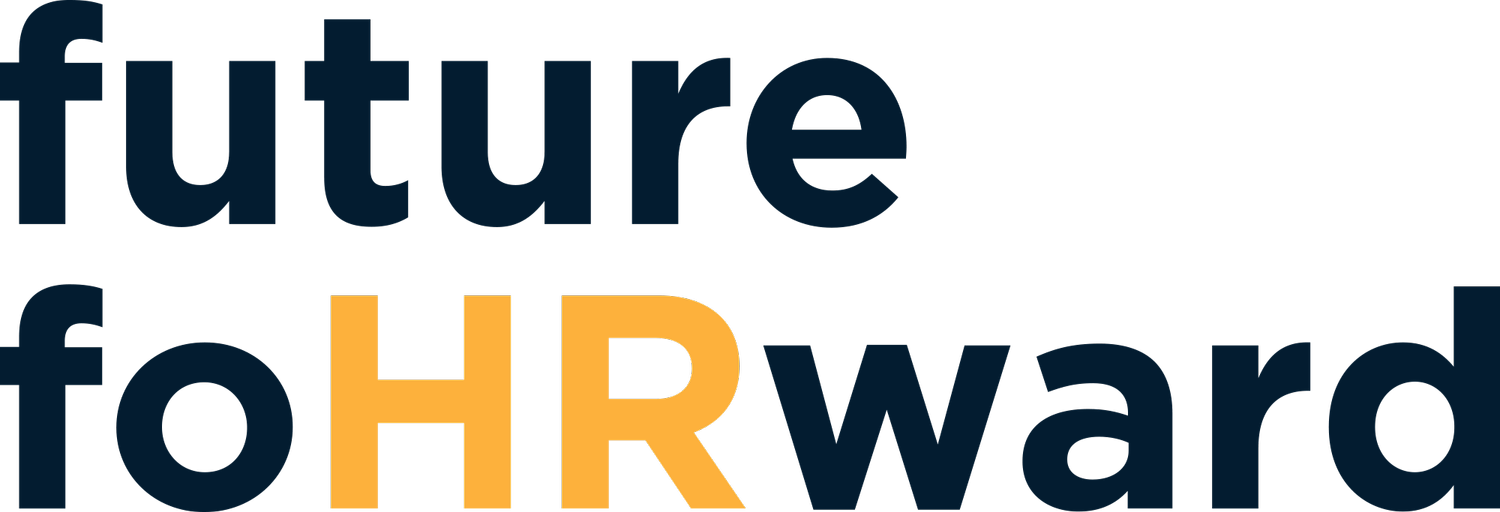Trust in the Workplace: The Critical Link Between Economic Optimism & Organizational Success
In our foHRsight podcast conversation with Cydney Roach, former Global Chair of Workplace Advisory at Edelman, we explored the evolving nature of trust in the workplace and its profound implications for organizations, employees, and society at large. With trust emerging as a critical factor in 2025's workplace dynamics, understanding its components and impact has never been more important.
Understanding Trust: More Than Just Reputation
“Unlike reputation, which is a rear-view summary of an individual or organization's words, behaviors, actions, trust is really a forward-looking indicator," explains Cydney. It essentially predicts whether people will find you credible in the future and serves as a crucial resource for stakeholders during difficult times or periods of significant change.
The Five Pillars of Trust
Based on extensive research conducted with Harvard and Stanford, Cydney identifies five fundamental pillars of trust:
Ability: Competence in delivering products or services
Dependability: Reliability in execution
Integrity: Ethical approach to work
Purpose: Connection to broader societal impact
Self: Personal reflection in brand or employee
These foundational elements work together to create a comprehensive framework for building and maintaining trust across all organizational levels and cultures. Their relative importance may vary by region and context, but together they form the bedrock of organizational trust.
The Evolution of Workplace Trust: A Four-Year Perspective
The relationship between employers and trust has evolved significantly:
2019: The Rise of Employer Trust
Institutions broadly faced declining trust
Employers emerged as trusted entities
Workplace became an anchor of stability
This shift marked a fundamental change in how employees viewed their organizations, establishing employers as a primary source of stability during uncertain times.
2022: Information Authority
Misinformation became widespread
Employers became most trusted information sources
Workplace communications gained heightened importance
This development highlighted the crucial role employers play in providing reliable information to their workforce, extending beyond traditional workplace communications.
2023: The New Town Square
Society experienced increased polarization
Workplace emerged as an "island of civility."
Employees found more comfort discussing issues with colleagues than family
This transformation of the workplace into a safe space for discourse demonstrated the unique role organizations play in fostering constructive dialogue and understanding.
2025: The Economic Optimism Gap
Economic pessimism affects trust levels
39% gap between executive and employee economic optimism
Direct correlation between economic optimism and trust
This significant disparity in economic outlook presents a critical challenge for organizations to address in building sustainable trust relationships.
The Critical Trust Gap
A striking finding emerges from recent research: while employers remain the most trusted institution, a significant trust gap exists within organizations:
78% of executives (EVP and above) feel optimistic about their economic future
Only 39% of employees (SVP and below) share this optimism
This gap has serious implications for:
Employee performance
Mental health
Organizational loyalty
Broader economic stability
This stark contrast in economic outlook between leadership and employees represents a fundamental challenge that organizations must address to maintain effective operations and healthy workplace cultures.
Three Key Strategies for Building Trust
Demonstrate Trust to Earn Trust
Prioritize transparency
Involve employees in planning
Value institutional knowledge
Create opportunities for input
These foundational actions create a framework for authentic trust-building that resonates throughout the organization.
Advocate for Sustainable Employment
Support continuous learning
Create clear career paths
Foster inclusive workplaces
Consider employment sustainability as a public health issue
This comprehensive approach to employment security helps create the stability needed for trust to flourish.
Create Agency
Give employees voice in decisions
Include staff in AI implementation discussions
Allow flexibility in work arrangements
Empower decision-making at all levels
These empowerment strategies help employees feel valued and invested in the organization's success, strengthening trust bonds at all levels.
The HR Leader's Role in Building Trust
For HR professionals, Cydney recommends three key actions that can help build trust in 2025:
Maximize Communication Impact
Leverage employer-generated information's trusted status
Ensure transparency in communications
Create consistent information flows
This strategic approach to communication helps establish HR as a trusted source of information within the organization.
Champion Sustainable Employment
Develop comprehensive career development programs
Create lattice career opportunities
Support continuous learning initiatives
These initiatives demonstrate long-term commitment to employee growth and development, fostering deeper trust relationships.
Foster Employee Agency
Include employees in decision-making
Create feedback mechanisms
Support autonomous work arrangements
This empowerment-focused approach helps create the conditions necessary for trust to thrive throughout the organization.
The Broader Impact: Trust as a Societal Force
The implications of workplace trust extend far beyond organizational boundaries:
Economic optimism influences broader social stability
Trust levels affect civic engagement
Workplace attitudes impact social cohesion
Employee confidence influences economic outcomes
These interconnected impacts demonstrate how workplace trust serves as a fundamental building block for broader societal stability and progress. As Cydney notes, the influence of workplace trust can even be considered "the linchpin of democracy."
Looking Forward: The Generation Z Factor
Cydney expresses optimism about the future, particularly regarding Generation Z's influence: "Their superpower is uniting for purpose... they care deeply about business and society." This generational characteristic might help bridge trust gaps and create more optimistic workplace environments.
Looking FoHRward
As organizations navigate 2025's challenges, building and maintaining trust becomes increasingly critical. The connection between economic optimism and trust presents both challenges and opportunities for leaders. By focusing on transparency, sustainable employment, and employee agency, organizations can work to close trust gaps and create more resilient workplaces.
As Cydney reflects, the role of HR has "more strategic input and influence than ever before," positioning HR leaders as key architects of organizational trust.






